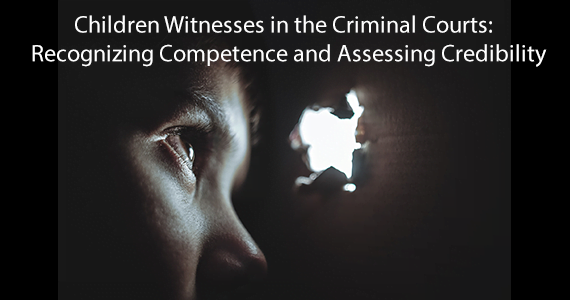
In State v. S.J.W., the WA Supreme Court held that a party challenging the competency of a child witness must show that the child is of unsound mind, intoxicated at the time of his production for examination, incapable of receiving just impressions of the facts, or incapable of relating facts truly.
S.J.W., a minor, was charged with a sex offense against a 14-year-old W.M., a developmentally delayed boy. The State wanted W.M. to testify against S.J.W., and S.J.W. challenged W.M.’s competency to testify. At the competency hearing, the trial judge concluded S.J.W. failed to meet his burden to establish that W.M. was not competent to testify. The trial judge permitted W.M. to testify at the bench trial, and S.J.W. was convicted.
S.J.W. appealed. The Court of Appeals affirmed S.J.W.’s conviction but held that the party offering a child witness bears the burden to show the witness is competent to testify. The Court of Appeals concluded that, although the trial judge erroneously placed that burden on S.J.W., this error was harmless. The State challenges this holding, arguing that the trial judge properly placed the burden on S.J.W. The WA Supremes agreed.
The WA Supremes reasoned that until 1986, former RCW 5.60.050 provided that all persons of suitable age could be witnesses except those of unsound mind, those who were intoxicated at the time of examination, and children under 10 who appeared incapable of receiving just impressions of the facts or of relating them truly. State v. Allen, however, changed the notion.
The court in Allen concluded that the true test of the competency of a “young child” of “tender years” consists of (1) an understanding of the obligation to tell the truth, (2) the mental capacity at the time of the occurrence concerning the testimony, (3) sufficient memory to retain an independent recollection of the occurrence, (4) the capacity to express in words her memory of the occurrence, and (5) the capacity to understand simple questions about the occurrence.
In other words, all persons, regardless of age, are now subject to this rule because there is no longer any requirement that a witness be of suitable age or any suggestion that children under 10 may not be suitable witnesses. A child’s competency is now determined by the trial judge within the framework of RCW 5.60.050, while the Allen factors serve to inform the judge’s determination.
My opinion? I prefer having the 10-year old “cutoff age” when it comes to child testimony. All to often, children are coached by biased adults. I’ve conducted enough jury trials to know that children usually repeat whatever the trusted adult wants them to say. Unfortunately, this court decision places an extra burden on attorneys – defense attorneys, undoubtedly – to show the respective child witness is incompetent to testify.
Please contact my office if you, a friend or family member are charged with a crime. Hiring an effective and competent defense attorney is the first and best step toward justice.






